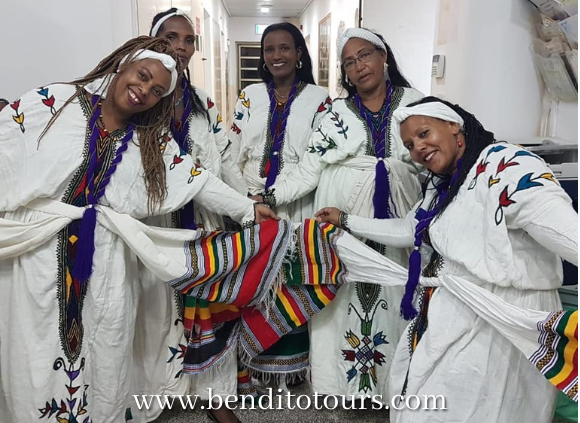Bedouins
Imagine the following scene: endless desert landscapes, silence. A Bedouin tent in the middle of nowhere, consisting of a large open canvas on the eastern side; On the floor were a multitude of colorful rugs and colorful cushions scattered. In a corner a small flame burns, and in the “finjan”, the typical Bedouin kettle, the aromatic infusion over the embers is heated. In the midst of that silence, the sounds of the flute of a Bedouin shepherd, who is agitated by his flock; The visitors, smiling, salute.
An old shepherd invites us to camp and in the tents offers us bread called “pita”, “tahini” (sesame paste), a fresh salad and “magluba”, a mixture of chicken with rice and potatoes. The desserts accompany hot coffee, a very sweet herbal tea and a variety of “baklawa” (Arab sweet)…
Bedouin hospitality in Israel is not a fantasy, but a reality, warm and sincere, with love. These values are based on Bedouin culture: hospitality first and then everything else. Bedouins are nomadic tribes that live in deserts. In the past, these tribes moved with their herds in search of food and water. This trend has changed and today most of Israel's Bedouins live in permanent urban locations, with a minority still living in the countryside, as it was before.
ÂncoraIn the stretches of the inhospitable desert in Israel there are Bedouin camps that are used to assist passersby and tourists who come to the place. The atmosphere is of great authenticity: camels resting in their spaces, waiting to take them on their hunchbacks along the sandy paths; A hot wind blows and people are lying on rugs and carpets, absorbing the calm and being captivated by that tranquility that is breathed.
The food is served in a large metal fountain, placed on a low table. When night falls, before the moon appears in all its splendor, the oldest of the Bedouins will tell ethnic stories about the cultural legacy of this place, its way of life, its faith, its culture and its traditions. Simultaneously, he will extract wonderful sounds from a mortar with his wooden hand, play the flute and sing his popular repertoire for hours. Fascinated, visitors can crown this incredible night with a walk in the moonlight, the experience they will take with them forever.
One of the greatest treasures of the Negev desert is its Bedouin. Visit a tent and watch the traditional welcoming ceremony! Camel rides, accommodation in a tent and jeep rides are part of what we call the “Bedouin Experience”.
Bedouin Culture Museum:
This museum has an interesting and well presented collection of jewelry, clothing, household items and various objects, which offer an insight into the lifestyle and culture of the Bedouins. Here you can learn about various Bedouin tribes in the Negev region. The museum is located in the middle of the Lahav forest and is the only Bedouin museum in the world. The museum's name honors Colonel Joe Alon, one of Israel's first combat pilots, an aerial attaché to the Israeli Embassy in Washington, who was killed in July 1973.
Bedouins in the Desert - Itinerary:
We will travel to the southern region. Visit to the Joe Alon Museum, the only museum in Israel entirely dedicated to Bedouin culture. Bedouins, former desert nomads, acquired a modern lifestyle, the result of cultural, social and economic changes. Their habits have changed, their dress and old Bedouin customs are slowly disappearing. The museum's goal is to register and preserve, before they disappear completely.
We will continue our journey to the Mitzpe Ramon region, where we will visit a Bedouin village not recognized by the authorities. Meeting with Bedouins to talk about their Challenges, the relationship and the preservation of their customs, old and new.
Possibility of accommodation in Bedouin Tent (Accommodation, Camel Ride and Typical Dinne




